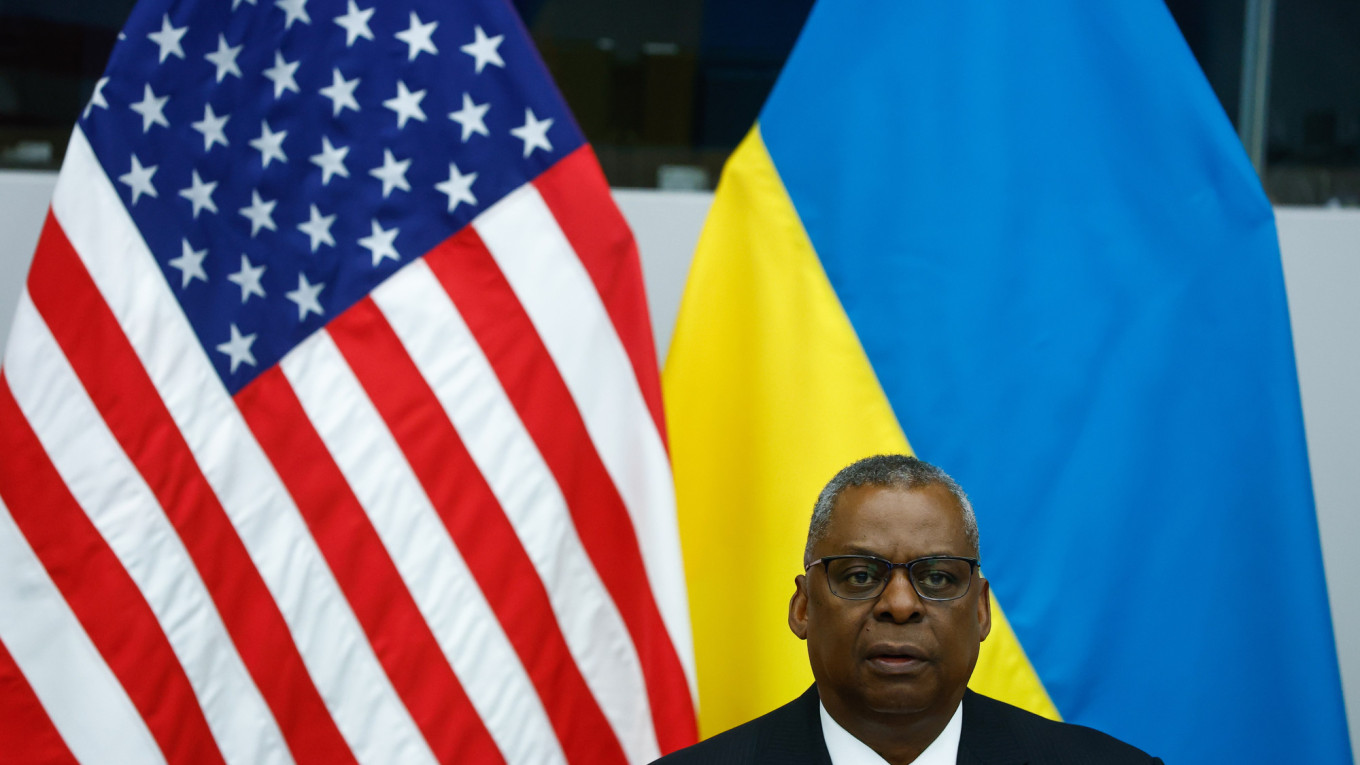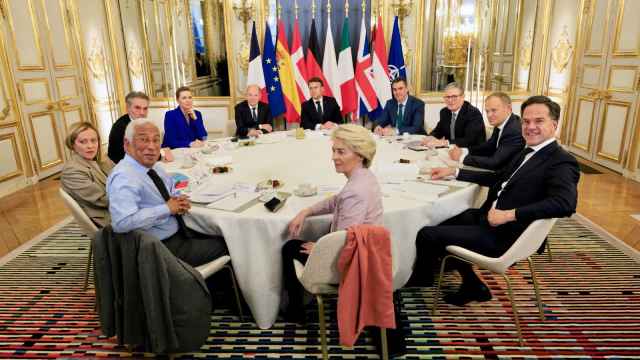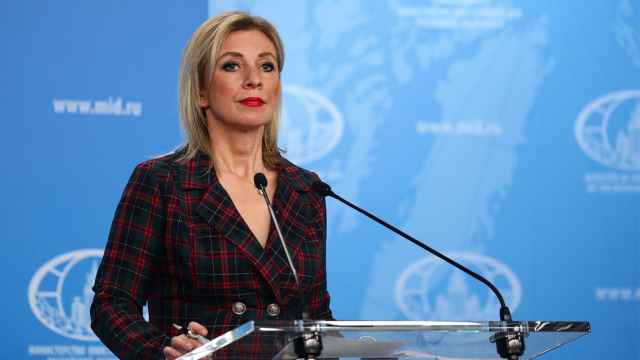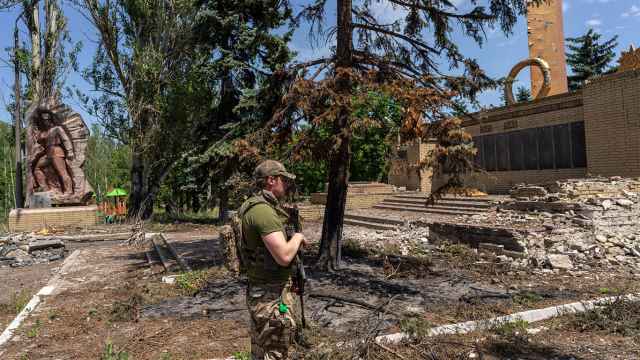The United States, Britain and France on Sunday jointly dismissed Russian claims that Ukraine is preparing to use a dirty bomb and warned Moscow against using any pretext for escalating the conflict.
Russian Defense Minister Sergei Shoigu made the allegation about a possible dirty bomb attack in a round of telephone conversations with Western defense chiefs earlier Sunday.
"Our countries made clear that we all reject Russia’s transparently false allegations that Ukraine is preparing to use a dirty bomb on its own territory," the U.S. State Department said in a joint statement with the British and French governments.
"The world would see through any attempt to use this allegation as a pretext for escalation," the statement went on. "We further reject any pretext for escalation by Russia."
A so-called dirty bomb is designed to contaminate a wide area with radioactive material, making it dangerous for civilians. It does not involve a nuclear explosion.
Ukrainian President Volodymyr Zelensky sharply denounced Moscow's claims, calling the allegation a Russian ploy for just such an attack in Moscow's eight-month-old war against its pro-Western neighbor. "The world should react as harshly as possible," he said.
"If Russia calls and says that Ukraine is allegedly preparing something, it means one thing: Russia has already prepared all this," Zelensky said in a video address on social media.
"Even the very Russian threat of nuclear weapons — and even more so against our country, which has given up its nuclear arsenal... is a reason for both sanctions and for even greater strengthening of support for Ukraine," said Zelensky.
Shoigu conducted a round of telephone consultations with counterparts from Britain, France and Turkey, all NATO members, after first speaking Friday with Austin.
In those calls, Shoigu conveyed "concerns about possible provocations by Ukraine with the use of a 'dirty bomb,'" the Russian Defense Ministry said.
Shoigu and Austin spoke Sunday, in what the Pentagon said was a follow-up call requested by Russia to their call Friday.
"Secretary Austin rejected any pretext for Russian escalation and reaffirmed the value of continued communication amid Russia’s unlawful and unjustified war against Ukraine," said a statement afterward from Pentagon press secretary Pat Ryder.
When Shoigu and Austin spoke on Friday, it was only their second call since Moscow sent troops to Ukraine on Feb. 24.
A Message from The Moscow Times:
Dear readers,
We are facing unprecedented challenges. Russia's Prosecutor General's Office has designated The Moscow Times as an "undesirable" organization, criminalizing our work and putting our staff at risk of prosecution. This follows our earlier unjust labeling as a "foreign agent."
These actions are direct attempts to silence independent journalism in Russia. The authorities claim our work "discredits the decisions of the Russian leadership." We see things differently: we strive to provide accurate, unbiased reporting on Russia.
We, the journalists of The Moscow Times, refuse to be silenced. But to continue our work, we need your help.
Your support, no matter how small, makes a world of difference. If you can, please support us monthly starting from just $2. It's quick to set up, and every contribution makes a significant impact.
By supporting The Moscow Times, you're defending open, independent journalism in the face of repression. Thank you for standing with us.
Remind me later.






